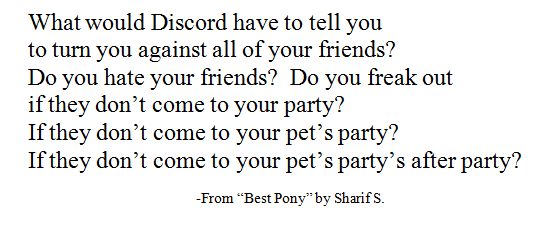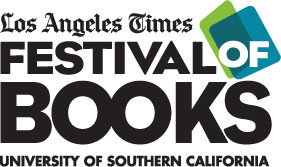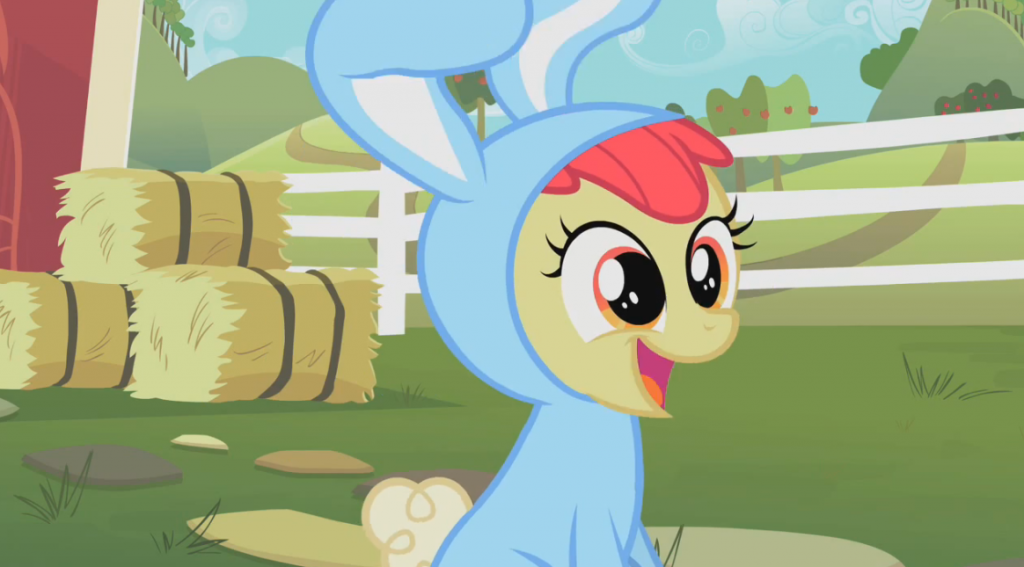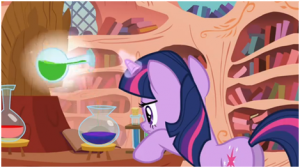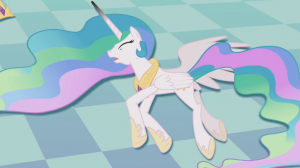Los Angeles Times Festival of Books 2013
I will be a part of a reading! It is held by the Masters of Professional Writing Program at USC during the Los Angeles Times Festival of Books! If you will be attending the festival, then come see me! It’s at 7PM in Leavey Library. I will be reading a poem called “Best Pony.”
It is a poem composed entirely of questions, most of them regarding My Little Pony, but at the same time regarding life. It is a disarmingly fun and a heartfelt piece.
Here is a couple of lines from the poem that might give you some insight into what I mean:
The reading will be at 7PM. I’m most likely going on after 7:30PM if you want to show up late and not get (good) seats.
Here is a map of USC’s campus with Twilight Sparkle as your destination marker.
Parking will be $10. If you’re going to pay, you should really go to the entire LA Times Festival of Books!
I hope to see you there! No, seriously, I hope you go…I want friendship. I hear it is magic.
Read MoreGirls, Philosophy, & Ponies in One Sentence
I was talking to my friend Alejandro about women; philosophy; and ponies, though not at the same time. It was a matter of time before there was some confluence.
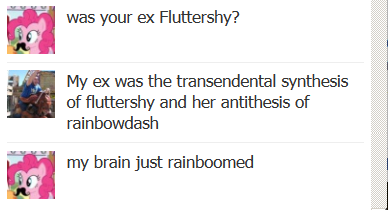 Although, this moment is tarnished by my sloppy chat-typing and not spelling transcendental correctly.
Although, this moment is tarnished by my sloppy chat-typing and not spelling transcendental correctly.
A Thousand Words or So to the Community College Bound
One of the lies we are told growing up is that if you study hard in high school, then you’ll make it to a big school and that school will be the key to your success. Not doing your work will get you a McDonald’s job. I have found this to be the adolescent equivalent of “keep making that face, and it will stick that way.”
Going to Mt. San Antonio Community College didn’t equal my failure. After completing the requirements, I applied and got into UCLA, Berkley, & UC Irvine. At the time UC Irvine was the one with the most impressive English program so I went there (Yes, better than UCLA). When I went there I ran into the salutatorian of my high school class who could only demand “What the hell are you doing here?!”
Although she never liked me, this wasn’t the reason for her outrage. She was pissed because throughout high school she acted the way she should have, and I didn’t. She had a GPA above 4.0 in high school. Mine was more like 3.0 (for an honors kid this was like having the GPA of an etch-a-sketch). Yet, there we were sharing the same prestige, in fact I saved about $50,000 for dicking around in high school. Isn’t there a bible story on this?
Reason 1: You can get the same degree with about half the debt. This will help, because your English degree from that top university won’t get you a decent job. It will just help you beat out people without degrees for crap jobs.

“You have a degree in the arts? Nice. Help Derpy with the art of loading this van, also she’s your boss.”
For me community college wasn’t a stumbling block, I knew this was a dangerous place where if I didn’t take things seriously, then I would never escape its publicly funded clutches. This caused me to stop looking at my GE’s as something in the way of my real academic pursuits. They became a means to an end.
It turns out that writers need to know more about the world than just writing. Otherwise they’re writers writing about writing. Although, I’ll admit, I find writing the most fun when I’m writing about writing or writers or writer problems, but sometimes it might be cool to write a piece about a marine biologist, or a piece that explores philosophical ideas, and I’m sure a course in chemistry didn’t hurt the writer of “Breaking Bad.”

“Hydrofluoric acid will eat anything but certain plastics? That’s neat and all, but when is this EVER going to turn up in my writing?” –Vince Gilligan (not really)
Reason 2: Community College is a death trap and the fear of it might make you actually study and learn things you can use in your writing.
When you transfer to a four year school you may notice a few changes. At UC Irvine I noticed that instead of being taught by an experienced adult with several publications and familiarity with the writing game, my instructors were replaced with grad students who were about my age and felt uncomfortable about the “Where have you been published?” question.
To be honest, I got lucky with most of my graduate instructors, most. Each of them offered me something new that has changed my views on writing forever, that includes the, um, less awesome TA’s.
But my community college mentor John Brantingham has done more to shape my views of writing than any other professor. In fact, he has probably shaped the fiction sections of “Writing Is Magic” more than any of my other professors.
Reason 3: Community college instructors tend to be more experienced teachers and writers (of course your own experience is subject to change).
Even if your counselor is like “Yeah, you totally took this class in community college!” there’s probably someone in the English department who is like “You’re going to have to take all your creative writing classes over again.”
So you will start again and you’ll listen to someone else talk about writing, but wait! This isn’t what a story is! This reading assignment doesn’t fit into what I was taught! Clearly I went to the wrong school! What’s Post-Modernism?! AAAAAH! THIS IS ALL WRONG!
This is fine. You came from one school with one way of doing things, and you’re entering a new school with a new way of doing things. The changes can be dramatic or subtle. If you’re lucky it’s dramatic and intimidating. Your mind will have to figure some way to reconcile the aesthetics and find your own path. Take what works. Leave what doesn’t. Don’t forget what doesn’t work; just leave it alone. It might be a key ingredient to your writing later on. If you aren’t going through these growing pains, THAT’S when I would worry that I didn’t go to the right school – but then maybe you did.
You might find yourself being behind the other students who already get the house style. They’ve been here since they graduated high school. This is the only way they know how to think about writing. However, as you start to find your voice, you will be the one with the advantage and confidence.
They have only attended one writing program. By this point you have attended two. They are a product of their program, with all of its strengths and weaknesses. Hopefully, you’ve managed to fill in the holes of your new four year school with the strengths of your community college teachings.
By your final years, you might be one of the finest writers in your program. You might even give some of the MFA’s a run for their money. But don’t be discouraged if your colleagues can’t see it; when they go off to do their MFA, you will get reports back saying “Remember what you said in workshop? Well, my professor said the same thing!”
I’ve said things in a peer workshops which were laughed at, and I was brushed off as having silly theories about writing. I said the same thing at USC and my professor actually applauded (If I’m not nominated for a TED talk in the next 3 years, I’ll do a video on it here).
You see everything they’ve been told to think about writing they got from one source, probably the aesthetic styles of whoever runs the program. Since you are their peer, you’ll lack credibility to have new ideas brought in and respected by the ego-driven crowds. To say something that disagrees with the house style, no matter how flawed the house style is or how sound your reason is, they will think that it is you who doesn’t understand. So they will need someone of merit to tell them the same thing you did before they’ll listen. (Befriend those who are open-minded enough to listen to you; this will keep you sane.)
Reason 5: No creative writing program is perfect. Each has its strengths and weaknesses. Already having a few creative writing classes from a different perspective will help you compensate for some of the weaknesses. If you didn’t go to community college, you’d have to wait until grad school to have this experience.
Although this was just my experience. Your experience may will vary. If you’ve gone through the community college system, feel free to comment on how it was like for you.
Easter Eggs
You know what would be cool? If I had our web designer Tracy McCusker hide an Easter egg on this website!
Completely unrelated, have you heard of websites that have special things happen when you enter the Konami Code?
Equestia LA‘s website has something awesome happen on it when you put the Konami Code.
I wonder if anything happens when you put Konami Code on this website.
Reading Chinua Achebe Part 3: UC Irvine
Click to read:
Part 1: High School
Part 2: Community College
At UCI some of the writers were easy to spot early on. If someone was helpless in the literature class, they were probably a writer. Sometimes they would defunct a reading by saying “That’s not what writers do,” instead of, you know, something not stupid. They had trouble with the type of thought required for literary criticism/critical theory. They were developed to think more from an angle of aesthetic criticism. In community college, critical theory and aesthetic theory seemed to go hand in hand. I didn’t realize that they had any difference or that there was a time and a place for each. I’ll discuss this more in the future.
In this quarter I was just starting to learn to separate my two parts of theories of literature. This should have been easy. I was an argumentative Muslim-agnostic living in a Christian country in a very divisive period. I also had the luxury of being able to pass for Middle Eastern, Hispanic, and/or Caucasian (Yes, even with a name like Sharif. *shrug* People are dumb?). When people were arguing about the benefits of locking Muslims up for no reason, then I couldn’t argue like an Arab (I’d sound biased). I’d have to argue like a white Republican American Christian. I’d point out contradictions of their arguments with the beliefs they testify to like a combination of Ditto and Pheonix Wright. The way most people code switch from the way they speak at home to the business casual vernacular they speak at work, I could code switch between ethos. Like Super Nintendo cartridges. Off. Pop. Blow. Swap. On. Let’s play.
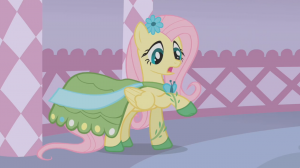
“‘Lock up all the Muslims?’ Where’s that Christian-American ethos cartridge? *blow* I think at a point we need to trust God to protect us. If we commit sins against the innocent due to our fear, then it shows a lack of faith in Christ. In addition, I believe that the terrorists can only destroy our buildings, but the American spirit of freedom can only be destroyed by jingoism and fear stirred up in ourselves. How can you talk about protecting freedom while talking about incarcerating the innocent? How can you be American, but advocate religious persecution? We must walk the careful line between vigilance and oppression. Of course, whatever you believe is fine, because this is America.” -Bush Administration Sharif
However, separating literary criticism from aesthetic criticism was like separating the water from Kool Aid. Especially when you don’t know that there is a such thing as aesthetic theory. It was mostly just “How do I reconcile what this person says about literature with what this person says.” For survival purposes this required a bit of Schizophrenia. Think this way on Mondays and Wednesdays; think another way Tuesdays and Thursdays. This process took me years of confusion, internal rhetoric, fights with professors, fights with grad students, looking like a jackass, fear, anger, hate, and suffering.
I read Things Fall Apart twice this quarter. The first time I read it was to refresh the story in my mind for class discussion, the second time was to write an essay.
In retrospect I realized that the first time I read it at UCI, I read it very much from a critical theory standpoint. The Igbo culture was a microcosm of the greater struggle of Africa being caught between cultures (though perhaps too obvious, general, possibly not true, and worst of all not enough to make a paper on).
When it was essay writing time, I reread and started hunting for quotes and such. This time, for some reason, I was looking more at the aesthetics and techniques of the book. The language was new for me. I guess this was the first time I really looked at the prose. It was clear and direct, simple yet elegant. There was no pretension trying to wax as wisdom. It was just wise. Direct, effective, adaptive, and powerful like Bruce Lee’s approach to martial arts, but with words. Things Fall Apart is a book as much to be experienced as it is to be read, analyzed, and understood. The language doesn’t have to create a faux complexity and play a game of “hide the secret;” the complexity comes from the honesty, empathy, and understanding from the author.
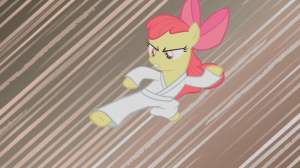
“The best form is to have no form. Unless it is poetry, then the best form is the villanelle.” -Bruce Lee (not really)
I noticed the use of folklore, which was a minor theme throughout other works we were studying. So I wrote an essay on that. I said how the story of the tortoise and the birds was a microcosm of the greater novel. I further went on to point out how folklore and a character’s relationship to it was used for characterization and to set up various plot points and relationships including relationships with one’s culture.
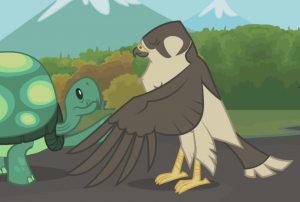
“Let me have some feathers so I can go to the bird feast in the sky. Seriously quit being a dick.” – Things Fall Apart (not really)
I was super excited for this essay, which is a bad sign I’ve learned. I have a passion for aesthetic theory, which means that it isn’t something I should turn into the critical theorist TA.
I remember right before the essay was due, many of my classmates were at a complete loss of what to write about since there were no prompts. So I started handing prompts out on subjects I saw but wasn’t passionate about. Write about the effects of colonialism on women as described by Wole Soyinka in “The Lion and The Jewel” and Mirama Ba’s So Long a Letter. Use Ngũgĩ wa Thiong’o’s Weep Not Child and Tsitsi Dangarembga’s Nervous Conditions to talk about the role of Western education in African self-awareness (Helpful hint, bring in the teacher’s book Decolonizing The Mind).
These prompts were very literary critc-y. Everyone who took one of my prompts got an A or an A-. I got a B- on my paper! Apparently, an ethnocentric feminist gaze of African polygamy had more legitimacy than discussing the use of African culture to show the greater book as a macrocosm of a piece of folklore.* Although, it might have helped streamline my paper if I actually knew the words “microcosm” and “macrocosm” when I was 21.
Speaking of folklore, I think I’ll end this in an Aesop. I was the same human being reading the exact same copy of a book, yet I wasn’t the same person. My worldview had shifted and so did my view of the world created by Achebe. If you’re a writer trying to control exactly how people read your book, you are fooling yourself and wasting your time. People will experience their own book, movie, comic, play, poem…
*It also might have helped to have incorporated Keat’s concept of the gyre, which today I still don’t quite understand. It’s like a self-referential vortex…kinda? I’m starting to remember why I didn’t try to put that in the essay.
Read MoreReading Chinua Achebe Part 2: Community College
I was taking a cultural anthropology class where we had to read an ethnography as one of our final assignments. I read Tales of the Shaman’s Apprentice by Mark Plotkin which is another book in the “which books had a profound impact on you.”
However, when we gave our presentations someone did her presentation on Things Fall Apart which is a book of fiction. I was kind of upset that I had missed a chance to do a lot less work and reread a book I already knew revisit this amazing text.
Despite my workload, I decided to reread the book anyway. The book changed. It became a real world example of how the facts of human nature I had learned from my anthropology class could directly apply to literature. Now the book was about ethnocide, the loss of one’s culture, the power one’s culture has over our definition of self and over our aspirations, and finally how utterly lost and unstable one can become when all of this is taken away. When conformity is demanded of a society’s behaviors, when a society’s ideologies are challenged and abandoned, and when this creates changes in that society’s economy and wealth, then what that can do to the individual.
The common reading of the end of Things Fall Apart is that Okonkwo is like Judas who hangs himself for being responsible for the death of Christ, represented by the Christian. Usually an allusion makes someone evaluate the work through the context of an outside work. Achebe’s allusion worked in both directions for me, since the typical way of reading this scene seemed not quite right. I reevaluated Judas through the scope of Things Fall Apart just as much as I thought of Things Fall Apart through Judas. Did Judas kill himself out of guilt? Or did he kill himself because there was a God who loved him and now he is dead?
In the end Okonkwo’s God is dead: his traditions, his worldview, and everything. Okonkwo is treated well by the Igbo traditions and religion. When he kills the Christian, there is the epiphany that the benevolent God is dead, except it isn’t through the death of the missionary, but through the reaction of the crowd. Their inability to stand up for their way of life against a seemingly unstoppable force shows him that the gods have been acculturated to death.
It would be easy to say that Okonkwo was a victim of an evil, invasive culture, but Achebe didn’t seem to do this. Things Fall Apart seems more descriptive than prescriptive. Here are the things, sometimes they are fortunate and sometimes they aren’t. He could have ignored the mutilation of stillborn babies or the throwing away of twins in the Evil Forest. But the Igbo traditions, like all traditions, have an aspect of oppression as well as liberation; it depends upon who one is and the circumstances. This is definitely a theme to Things Fall Apart (hear that high schoolers Googling for cheats on your homework?).
With this theme, I learned Cultural Relativism can actually help create a greater and more complex plot, world, and characters. I learned a writer has more power being an anthropologist than being a nagging parent demanding the world to conform and behave. On top of that simply describing a world using your world view, people can’t help but see the same flaws you do.
Read More
